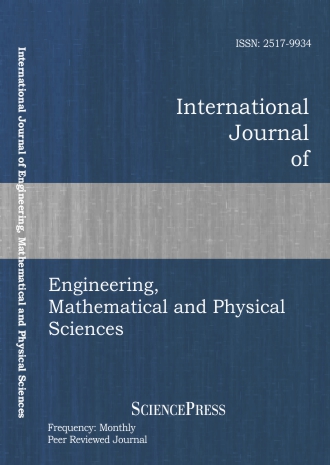
Scholarly
Volume:8, Issue: 11, 2014 Page No: 1399 - 1402
International Journal of Engineering, Mathematical and Physical Sciences
ISSN: 2517-9934
1931 Downloads
The Relative Efficiency of Parameter Estimation in Linear Weighted Regression
A new relative efficiency in linear model in reference is
instructed into the linear weighted regression, and its upper and lower
bound are proposed. In the linear weighted regression model, for the
best linear unbiased estimation of mean matrix respect to the
least-squares estimation, two new relative efficiencies are given, and
their upper and lower bounds are also studied.
Authors:
References:
[1] Q.T. Duan, Y.H. Zhang, “Relative Efficiency of LSE in Linear Weighted